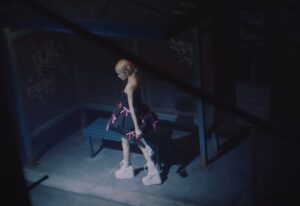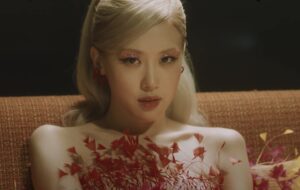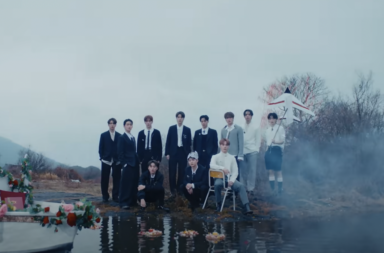
It is hard to think of a complaint more common in the K-pop sphere than “[insert b-side here] should have been the title track instead of [insert wounded title track here]”. The passionate opinions fans have about title track choices may sometimes seem out of proportion, but it is mostly understandable in the context of just how much of a comeback’s content will center around the anointed title track. Idols’ eras are not defined by albums. They are defined by title tracks.
Just how often is this criticism truly justified though, especially keeping in mind that the point of a title track is not exactly to be the best song, but rather the most marketable and memorable one? In this writer’s opinion, not that frequently. Fans are not the only ones who recognize the crucial nature of the title track decision. Companies realize it too, and it is clear that they deliberate long and hard over title tracks, weighing many artistic and commercial factors. Most often, they come to conclusions that may be unpopular, but are objectively understandable and even wise.

Of course, rules exist to have exceptions. Rosé’s “Gone”, the only b-side from her two-tune solo debut, is one. Title track “On the Ground” is not terrible, but as a solo debut, it is disappointing. “On the Ground” is painfully generic, a song that could easily be sung by a wealth of K-pop vocalists. It also does nothing to differentiate Black Pink’s Rosé from Rosé the soloist.
In contrast, “Gone” is an interest-peaking look into Rosé’s individual artistic identity, exactly what a solo debut should be. It is somewhat understandable that YG Entertainment would hesitate to make a straight-forward ballad like “Gone” a title track. But when one of two options is far more compelling and distinctive than the other, you would think the decision would not be that difficult. Alas, YG Entertainment did not agree, and they chose the path more traveled.
“On the Ground” has been a smash success, so it is hard to call the company’s decision a complete bust. Still, as the first impression for a promising soloist, “On the Ground” leaves a lot to be desired, especially since a more viable option is right within sight. Luckily, “Gone” is receiving a decent amount of promotions, including a belated MV. If anything, the aesthetic and emotionally engaging MV for “Gone” further emphasizes the song’s superior appeal.
“Gone” is a simple MV, flipping between sequences of Rosé before and after a bad breakup, first filled with naive joy and then consumed by bitter sorrow. What makes “Gone” memorable is its understated yet captivating visual flair and Rosé’s convincing performance.
The MV’s images may have mundane content, but their composition is meticulous. There are a lot of different sets, but unlike many other K-pop MVs, the varied settings of “Gone” are cohesively connected by visual patterns. There is the washed out color palette, punctuated by jewel-toned touches, like a spilled glass of wine or a pile of artificially-colored flowers. A shared lighting scheme also stretches throughout “Gone”. Dim rooms are alternately flooded or just barely pricked by streaks of light provided by windows, screens, dripping candlesticks, and antique lighting fixtures.
A vague sense of the vintage permeates the MV, serving as an additional source of cohesion. None of the technology showcased is contemporary. Rosé answers an old-fashioned phone, sits beside a vintage refrigerator, and uses a retro video recorder. She waits at a grungy bus stop that has a slight 80’s flair, and wallows in a house covered in faded floral wallpaper.

Vintage influences can also be seen in Rosé’s collection of outfits. Whoever styled “Gone” deserves huge praise, because not a single look fails to impress. From a lilac babydoll dress, to a patchwork jean jacket and a feathery rainbow gown, each piece of clothing and its accompanying accessories, hair, and makeup are pretty much perfection. For an MV that consists almost entirely of shots of Rosé lounging in her feelings, that is a huge victory for the overall visual impact of “Gone”.
Of course, it is one thing to make an aesthetically pleasing MV, and another to make a MV that has any sort of emotional impact. “Gone” succeeds in this arena too, thanks to Rosé’s committed performance. All idols are trained to act effectively in MVs, but there is a certain kind of unforced on-screen presence and emotional nuance that you either have or you don’t.
Rosé has it, something that does not seem to have gone unnoticed by YG Entertainment, given the increasingly central role she has been given in Black Pink’s MVs. Her natural acting abilities are on full display in “Gone”. She does a lot with a little, convincingly portraying the fraught emotions that fill the song:
You broke my heart just for fun
Took my love and just left me numb
Now it’s 8 in the morning, Hate in the morning
All because of you

If the MV for “Gone” does a great job showcasing Rosé’s performance strengths, the track itself does the same thing for her musical talents. While Black Pink’s music tends to leave Rosé stranded in a constantly high pitched place, “Gone” gives her the chance to flex her vocal range. The lower-toned pre-chorus is especially lovely, leading nicely into the higher refrain. The song’s basic instrumentation, almost entirely made up of a strummed electric guitar, bolsters the track’s ballad identity while still retaining a youthful edge.
“Gone” has all the ingredients you could ask for in a solo debut. It is visually engaging, sonically memorable, and most crucially of all, unique. This is a song that is properly tailored to the talents and artistic potential of its artist.
It is a real shame that the less distinctive “On the Ground” claimed the position of title track. To take an optimistic view though, “Gone” at least proves that Rosé has something genuinely compelling to offer as a soloist. It can only be hoped that when she has her sophomore comeback, Rosé will tap into the same stylish vulnerability that makes “Gone” so interesting. And perhaps this time, it won’t just be in a b-side.
(Forbes, YouTube. Lyrics via Popgasa. Images via YG Entertainment)


